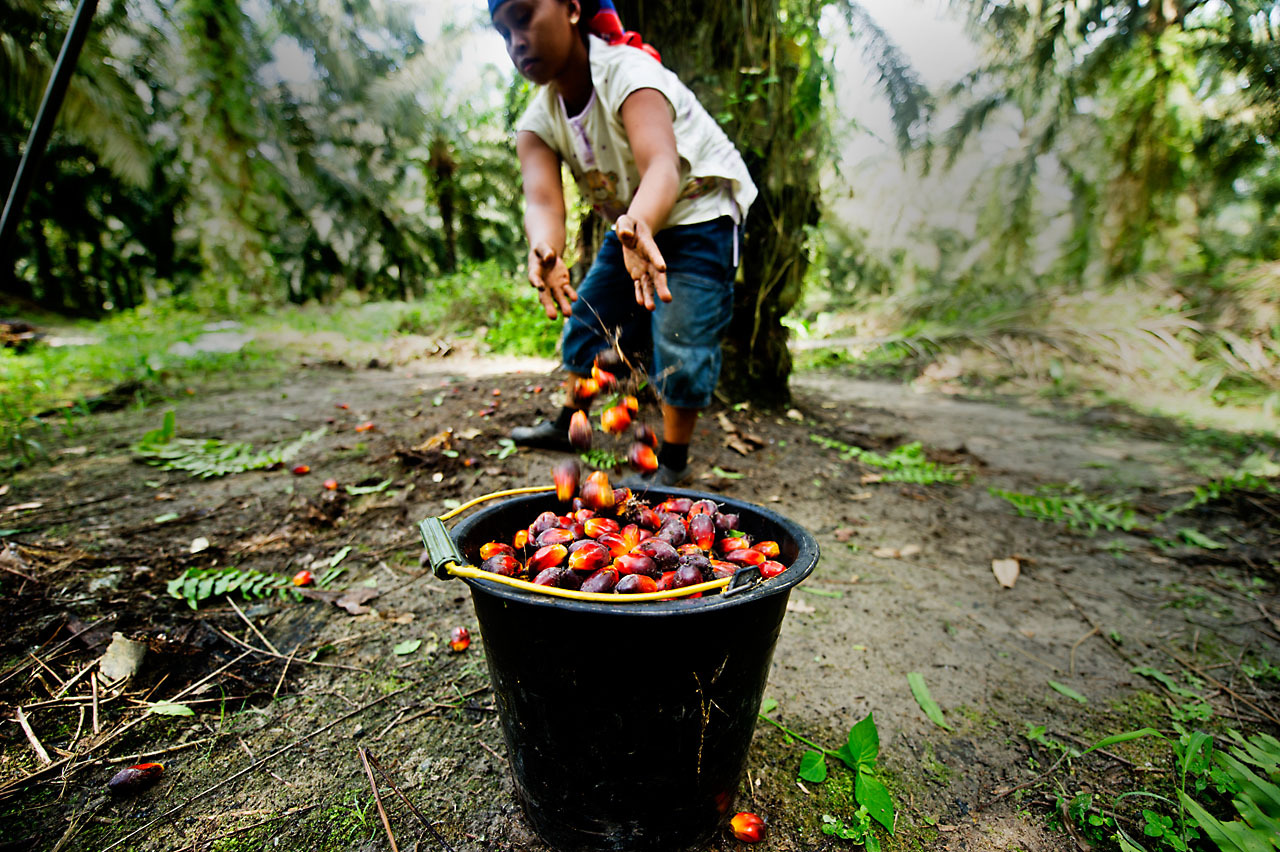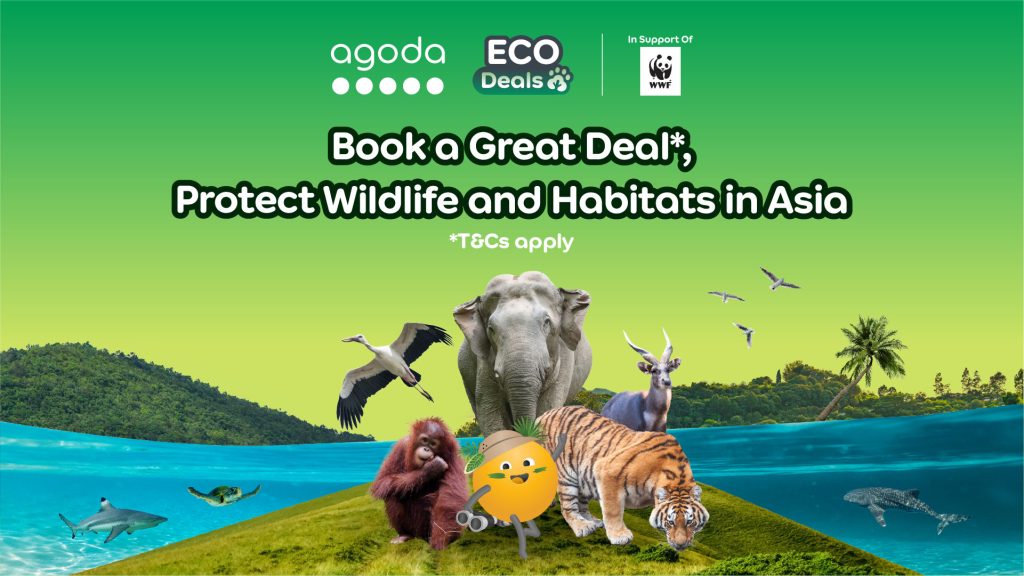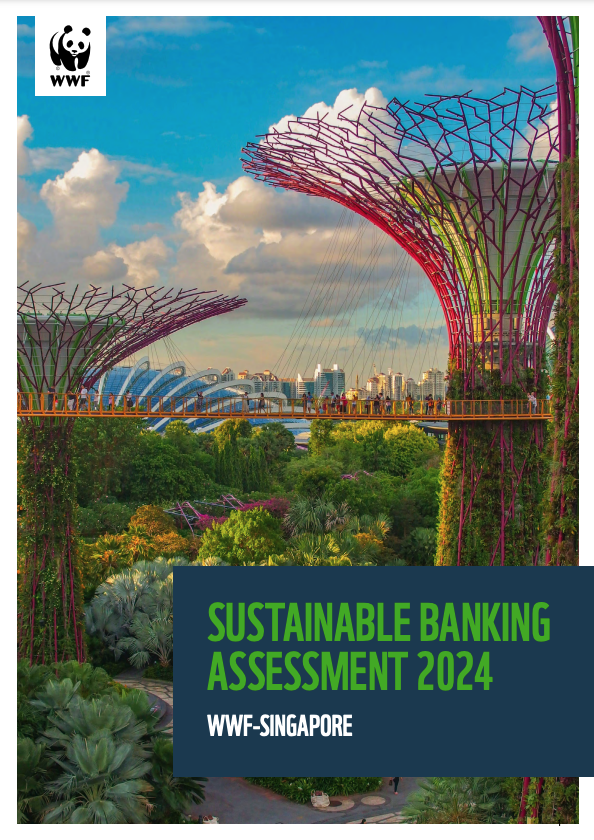Singapore - Environmental and social impacts of palm oil plantations could pose a material risk to investment in the fast growing sector, according to an investor survey released by WWF to a recent high-level meeting of investors and producers.
WWF’s first-of-its-kind Palm Oil Investor Review 2012 underlines how growing concern over deforestation, biodiversity loss and community conflict could impact the industry and shows the intensifying spotlight being placed by investors on the sustainability of the palm oil industry.
More than 50 million tonnes of palm oil are used worldwide each year in everyday products including food and cosmetics. From 2010 to 2020, this volume is projected to increase by over 65%. The growing demand for palm oil has resulted in rapid and poorly managed expansion of production, causing deforestation, species loss, greenhouse gas emissions and social conflicts with local communities.
“Investors are increasingly aware of the strong link between sustainability and long term investment success,” said WWF’s Jeanne Stampe, co-author of the report. “Investee companies that integrate sustainability into the core strategy and operations are better able to mitigate risks and exploit opportunities, thereby deriving business benefits and delivering better investment performance.”
WWF surveyed 35 key palm oil sector investors to assess their views and management of the sustainability challenges inherent in the palm oil industry.
Nearly two thirds of the investors surveyed are experiencing increasing demand for Environmental, Social and Governance (ESG) screens from their institutional clients and this is magnifying their focus on ESG issues. Even passive investors such as index funds are starting to show interest in new ESG overlays.
While a larger majority of investors (69%) already apply a responsible investment policy, many of these policies do not extend beyond governance, however over 50% of investors would consider creating dedicated policies e.g. a broader sustainable land-use policy.
Investors do face internal organizational constraints in addressing ESG risks such as the lack of internal ESG capabilities or firm-wide access to internal ESG analysts, but several are actively looking at internal strategic options to address these constraints, for example formulating centralised ESG risk functions and boosting internal ESG analyst teams.
“The palm oil sector presents an attractive growth proposition for investors, but ESG issues and the lack of company disclosure still cloud the ability of many to invest,” said Stampe.
According to investors, reputational risk, poor environmental performance and lack of company ESG disclosure pose the greatest challenges to greater investment into the sector and the key factors to overcome these are availability of key data, the strengthening of the RSPO, demonstrable progress by its members toward certification and legislative changes that support the RSPO.
Investors see the Roundtable on Sustainable Palm Oil (RSPO) as the most influential initiative and the de facto standard for investment screens, but want it to cover more issues such as corruption and have “more teeth”, to ensure that members make and meet their commitments towards sustainable palm oil.
WWF support
WWF sees the financial sector as an important driver of sustainable palm oil production and trade. “Investors are uniquely placed to influence investee companies to adopt sustainable practices through active engagement and exercise of proxy voting rights, and through directing their investment capital towards sustainable palm oil producers,” said Stampe.
The report provides in-depth recommendations to assist investors to overcome some of these challenges so as to maximise their ability to guide the industry. WWF will continue to support the financial sector by providing information and guidance through tools, research updates, and workshops with finance sector partners.
”If we all – investors, the RSPO and stakeholders such as WWF – work together, we can ensure that the palm oil industry expands in a sustainable way, so that long-term investment returns are enhanced and emerging economies benefit from sustainable development.” said Jeanne Stampe.
For further information:
Chris Chaplin – Media Officer Asia Pacific, WWF International,
+86 10 6511 6272, Mobile: +86 13911747472, cchaplin@wwf.sg















